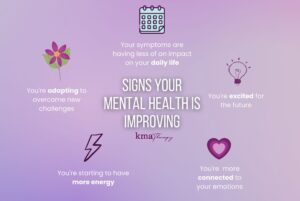
Mental Health Matters: Signs You Need to Slow Down
You power through your to-do list, answer emails late into the night, and push yourself to stay productive. But at what cost?
Mental health isn’t always about breakdowns—it’s about balance. And sometimes, the earliest signs that your mind is overwhelmed are the easiest to ignore.
In a world that glorifies hustle, it’s crucial to recognize when your brain and body are silently pleading for rest.
Also check for : gut-check-what-your-poop-says-about-your-health
Here are the subtle (and not-so-subtle) signs that it’s time to pause, breathe, and prioritize your mental well-being.
⚠️ 1. You’re Always Tired—Even After Rest
If you wake up feeling like you haven’t slept at all, despite a full night’s rest, that’s not just physical exhaustion—it could be mental fatigue.
🧠 Your mind may be on overdrive, processing stress non-stop—even while you sleep.
What to do:
Incorporate true rest: quiet time, nature walks, or mindfulness exercises. Don’t confuse sleep with restoration.
😣 2. Small Things Feel Overwhelming
Does replying to a simple text feel like climbing a mountain? When your mental load is too heavy, even the smallest tasks can feel impossible.
This can be a key sign of burnout—your brain’s way of saying “I need a break.”
What to do:
Break tasks into smaller steps, and give yourself permission to say no.
😤 3. You’re Easily Irritated or Snapping Often
If you find yourself overreacting to minor annoyances—traffic, noise, or someone chewing too loudly—it might be more than just a bad mood.
Chronic stress lowers your tolerance, making you emotionally reactive.
What to do:
Check in with yourself regularly. Try journaling or short breathing sessions to regain emotional regulation.
😶 4. You Feel Numb or Disconnected
Sometimes the sign isn’t feeling too much—it’s feeling nothing at all. If joy feels muted and your world is on autopilot, you may be emotionally shutting down.
This can be a defense mechanism from long-term stress or anxiety.
What to do:
Reach out to a trusted friend or professional. Human connection helps ground and reawaken your emotional senses.
🧠 5. You’re Forgetful or Struggling to Focus
Do you find yourself rereading the same sentence or forgetting why you walked into a room? This is mental fog, and it often signals cognitive overload.
What to do:
Unplug for short brain breaks. A 10-minute walk without your phone can work wonders for clarity.
😔 6. You’ve Lost Interest in Things You Used to Enjoy
When your favorite hobbies start feeling like chores, it could be more than just a bad week—it might be an early sign of depression or chronic stress.
What to do:
Reintroduce joy in small doses. Listen to music you love. Revisit a favorite book. Give yourself space to rediscover your spark.
🧭 7. You Feel Like You’re Just “Getting Through the Day”
If your life feels like a checklist you’re surviving instead of experiencing, it’s time to slow down and reevaluate.
You deserve more than just functioning—you deserve to feel alive.
✅ How to Slow Down—Without Quitting Everything
Slowing down doesn’t mean stopping. It means pausing to recharge before you’re forced to crash.
Here are simple, daily shifts you can start today:
-
🌿 Practice 5-minute mindfulness (even in your car or shower)
-
📅 Schedule breaks like appointments
-
💧 Stay hydrated and nourish your body
-
🚶♂️ Move your body without performance goals
-
📵 Unplug from devices for 30–60 mins daily
-
🗣️ Talk to someone—a friend, mentor, or therapist
These aren’t luxuries—they’re essentials for sustainable mental health.
🧘♀️ Reminder: Rest Is Productive
We live in a world that celebrates “busy” but often forgets that burnout helps no one. You’re not lazy for needing rest. You’re human.
Mental health matters because you matter.
So listen to the signs. Your mind is wise—and when it whispers, don’t wait for it to scream.
💬 Final Thought
Slowing down isn’t a weakness—it’s a skill. One that allows you to stay grounded, clear-headed, and connected to what truly matters.
So next time your mind says “I can’t do this right now,” believe it.
Your health isn’t a side project. It’s the foundation of everything else.
